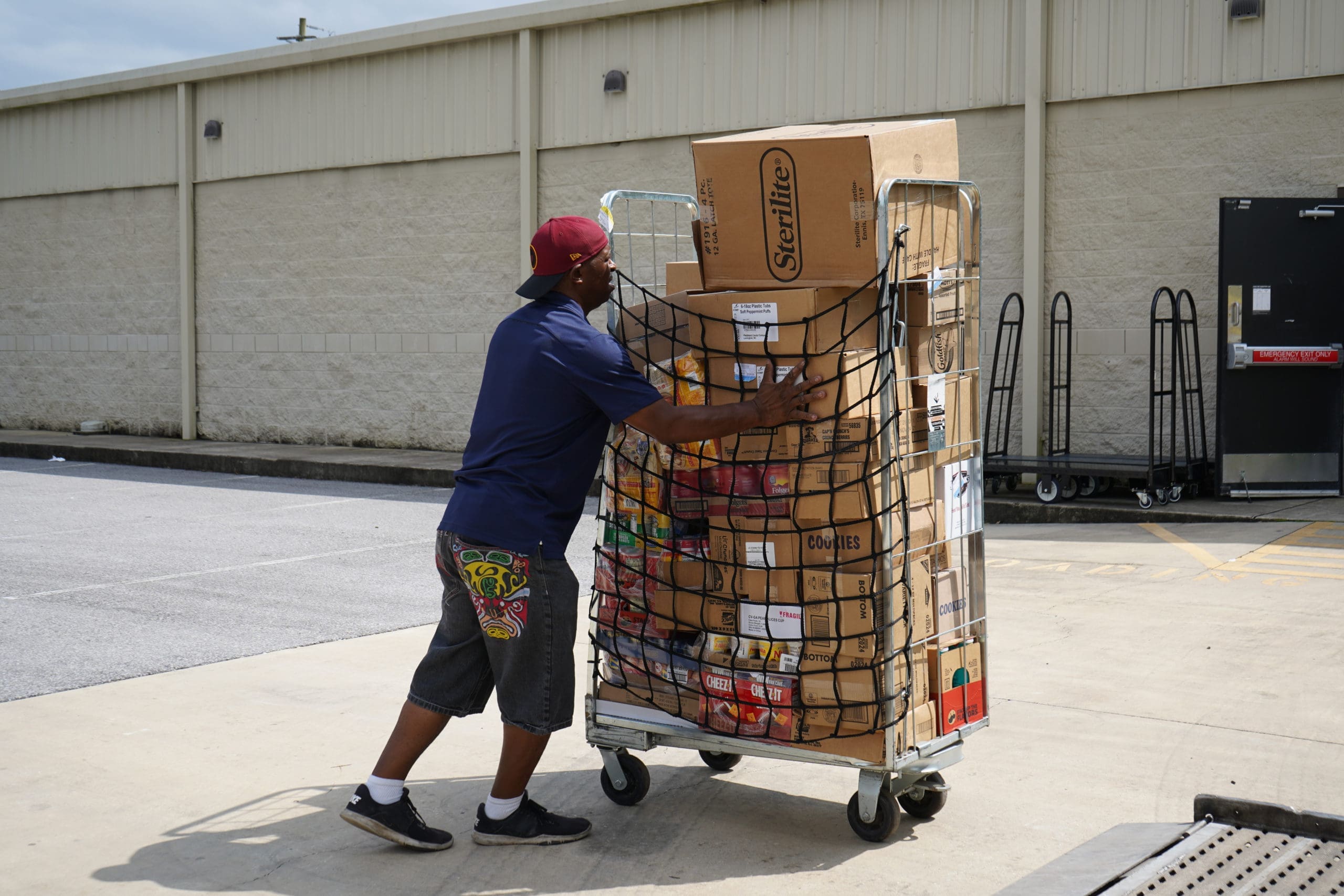How to Handle Supply Chain Disruptions
Numerous events across the world recently have led many people to wonder how to handle supply chain disruptions. It’s not easy: the supply chain is something that involves a lot of individual moving parts, people, equipment, and even politics. For this reason, any small disruption to the chain may find itself disrupting the entire thing, causing weeks or even months of delays for many different products and goods. While you may not have the agency necessary to handle the supply chain disruptions by yourself, there’s something we all can do to make the entire process run more smoothly.

How to Handle Supply Chain Disruptions: What Can You Do?
Whether you’re a supply chain worker, an organization director, or just a consumer, everyone has their part to play in the supply chain. Particularly for business owners, and supply chain slowdowns can place a dampening effect on your business operations. Regardless of your position, there’s still a way you can handle and cope with supply chain disruptions.
From a Business Perspective
A whopping 38.8% of small businesses in the U.S. experienced supply chain delays as a result of COVID-19. This, along with other factors, has shaken up the business landscape as of late. As mentioned previously, a business that relies heavily on the supply chain can be caused serious harm by any disruptions the chain may face. If you’re a business owner wondering how to handle supply chain disruptions, you can:
- Order your supplies in bulk. If you’re a business that relies on having inventory on-hand and ready to go at a moment’s notice, you may want to consider ordering your inventory in higher quantities, less frequently, and do so in advance to avoid any consequences related to supply chain delays.
- Diversify your suppliers. Oftentimes the disruptions can affect one supplier more than the other, or may not affect some suppliers at all. This is why you should aim to diversify your suppliers- if one supplier is suffering from heavy delays, your business will only marginally suffer due to your diversification in that area. If you rely too heavily on one source for your business’s inventory, goods, or supplies, any delays with that distributor may completely halt your business operations.
- Always communicate. Customers, particularly regular ones, are extremely receptive to a business that treats them as human beings as opposed to numbers on their financial reports. This means that you should always seek to communicate with your customers in advance of any delays that may harm your business cycle; explain the situation, and consider offering a consolation reward in return.
From a Consumer’s Perspective
Consumers everywhere have been asking themselves how to handle supply chain disruptions. It’s not easy: Ecommerce makes up a huge portion of the shopping experience in the United States. According to Statista, 75% of consumers shop online at least once a month; disruptions to the supply chain have more of a direct impact on consumers now than ever before. If you’re a consumer concerned with how to handle supply chain disruptions, you can:
- Shop more in-person. Retailers and other businesses often have ways to get around supply chain disruptions, such as larger inventory counts, a more reliable supply chain, and other factors. They have more access to methods of alleviating supply chain woes than the average consumer, so shopping in person will likely improve your experience through any supply chain disruptions that may occur. Your wallet speaks volumes- support in-person businesses and you will find that you’re affected by supply chain issues much less.
- Consolidate your purchases. It can be tempting to make several different purchases over the span of a week. One thing here, one thing there – retailers make it simple to purchase something in the blink of an eye. If you find yourself repeatedly affected by supply chain issues, you may want to consider making one larger purchase per week, or otherwise making fewer, larger purchases throughout your time shopping. Part of the reason for the supply chain disruptions is the fact that the logistics field has been overwhelmed by the drastically increased demand over recent years – making fewer purchases can help alleviate these issues.
- Consider joining the logistics industry. As mentioned before, the logistics field is suffering from a drastic increase in demand due to the change in shopping behavior brought upon by the COVID-19 pandemic and other shifts in business and culture. This means that truckers and other logistics professionals are currently in high demand. Obtaining your CDL is easier than ever – check out this blog post to learn more about joining the industry.
Join the Logistics Industry With Truck Driver Institute
There’s never been a better time to make your debut in the logistics industry as a truck driver. Truck drivers are in demand, their salaries are high, and becoming one can be a great way to kickstart your career. Earning your CDL with Truck Driver Institute takes as little as three weeks! Combined with only $200-$300 out-of-pocket expenses to begin and an over 80% placement rate for our students upon graduation, starting your trucking career with Truck Driver Institute is a no-brainer.
If you’re concerned about costs, Truck Driver Institute offers several different payments and financing options for our students. These options include the Post-9/11 GI Bill®, self-paying student scholarships, employer-paid education, and more. Check out our blog post on the topic to learn more about financing options for your future trucking career.
Start Your Career With Truck Driver Institute
Supply chain issues got you down? Be the solution. Trucking companies everywhere are scrambling to find qualified truck drivers to alleviate their supply chain disruptions, and you can be the answer. In just three weeks at TDI, you can earn your CDL and begin your trucking career. Truck driving is lucrative, liberating, and – most importantly – a career that can last a lifetime. Contact us or visit our website to learn more about how TDI can help you kickstart your career.
Get Started
Get your Class A CDL in our friendly, supportive CDL training program. TRAIN with experienced instructors – multiple good-paying, secure job choices with benefits available for eligible graduates. EARN $700 – $1000+ / week to start as a truck driver. Get started today by filling out the form below. We look forward to hearing from you!



